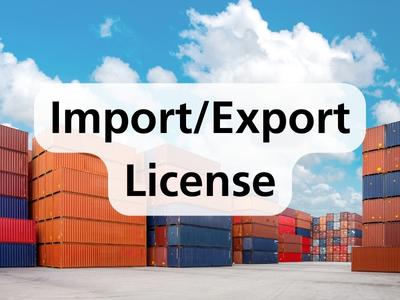Understanding Import/Export License

Malaysia, aiming to strengthen its position as a regional trade hub, has streamlined its import and export procedures to promote business growth and foreign investment. The country has prioritised simplifying processes and reducing bureaucratic barriers so businesses can engage in international trade efficiently and transparently.
Authority and Licensing
The Ministry of International Trade and Industry (MITI) in Malaysia oversees the issuance of licences and permits for importing and exporting activities. Businesses with a strong compliance record can benefit from simplified procedures and faster approvals
Business Registration and Licensing
All businesses intending to import or export goods must register with the Companies Commission of Malaysia (SSM) and obtain a Business Registration Number (BRN). Once registered, businesses can apply for an import/export licence through the Malaysian National Single Window (MyTRADELINK) portal.
Additional Licensing Requirements
For specific goods, businesses may need additional licences or permits. For instance:
- Controlled Goods: Items such as food, pharmaceuticals, or electronics may require additional permits from relevant authorities like the Ministry of Health or the Energy Commission.
- Prohibited Goods: Some goods are restricted or banned and require special approval to trade.
HS Code Classification
Before proceeding with import or export activities, businesses must determine the Harmonized System (HS) Code for their products. HS codes classify goods for customs purposes and determine applicable tariffs, duties, and regulatory requirements.
Documentation for Imports
Importing into Malaysia requires key documents, including:
- Commercial Invoice
- Bill of Lading or Airway Bill
- Packing List
- Certificate of Insurance
- Customs Import Declaration
- Import Permit (if applicable)
Import duties and sales tax depend on the HS Code classification and typically range from 0 to 15 percent, with goods from ASEAN member countries often enjoying reduced rates under the ASEAN Free Trade Area (AFTA) agreement.
Export Process and Documentation
Exporting goods from Malaysia requires a valid sales contract and adherence to payment methods such as a Letter of Credit (L/C) or direct bank transfers. Only legally registered entities, such as limited liability companies, cooperatives, or public companies, can engage in exports.
Documents required for exporting include:
- Bill of Lading
- Commercial Invoice
- Packing List
- Export Permit
- Certificate of Origin (COO)
- Customs Export Declaration
Exporters in Malaysia generally benefit from tax exemptions, except for certain goods like palm oil and crude petroleum, which may incur duties.

